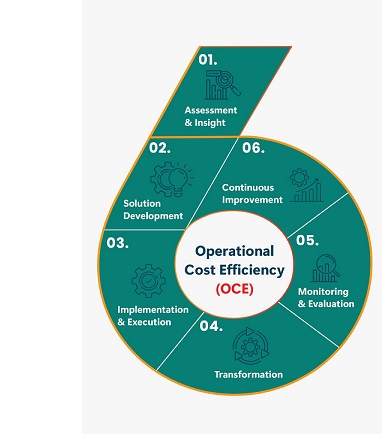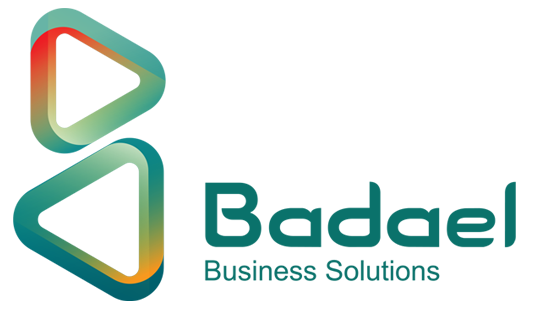
methodology
Badeal’s Methodology:
Our methodology is designed to ensure effective, sustainable, and impactful consulting services by guiding clients through structured, results-driven solutions

This phase is critical as it lays the foundation for informed decision-making. Through comprehensive data collection, stakeholder engagement, and analysis of both internal and external environments, we uncover the organization’s core challenges, needs, and strategic direction. This allows us to identify key gaps and opportunities, ensuring that proposed solutions are not only relevant but also aligned with the organization’s goals and Qatar’s national vision. The insights gathered here guide and shape all subsequent phases of the transformation journey.
Guidelines:
✔ Conduct stakeholder interviews, surveys, and workshops.
✔ Perform SWOT and PESTLE analyses.
✔ Benchmark performance against national and sectoral standards
✔ Review current policies, strategies, and KPIs.
✔ Document critical pain points and growth opportunities.
✔ Prioritize issues based on strategic impact and urgency.
This phase is where insights are transformed into tailored, actionable strategies that directly address the organization’s priorities. By developing practical, data-driven solutions, we ensure that each recommendation enhances efficiency, sustainability, and innovation. Prioritizing initiatives based on feasibility and impact enables organizations to focus resources where they matter most, ensuring alignment with national goals and laying the groundwork for smooth implementation and long-term success.
Guidelines:
✔ Organize solution design sessions with leadership and technical teams.
✔ Develop alternative solutions and assess their feasibility and ROI.
✔ Align strategies with national frameworks and organizational mandates.
✔ Create a phased roadmap with timelines and milestones.
✔ Validate solutions through simulations or scenario planning.
✔ Gain leadership endorsement before moving to execution.
This phase marks the implementation of the tailored solutions designed to address the organization’s specific challenges. As a consultancy firm, we do not apply one-size-fits-all models—instead, we respond to the unique context of each organization. Our role is to ensure that these solutions are executed effectively, integrated into daily operations, and supported by the right resources and capabilities to deliver measurable results.
Guidelines:
✔ Form an implementation task force with clear roles.
✔ Break initiatives into manageable workstreams.
✔ Define Standard Operating Procedures (SOPs).
✔ Conduct training and awareness programs for staff.
✔ Use project management tools to monitor tasks and deadlines
✔ Identify early wins to build momentum and confidence.
Sustainable change requires embedding new practices into the organization’s culture and governance structures. This phase ensures that implemented solutions lead to long-term improvements by fostering adaptability, innovation, and accountability. Successful transformation results in enhanced resilience and continuous growth. Real change happens when new ways of working are embedded into the culture and systems of the organization. This phase ensures long-term sustainability of the changes initiated.
Guidelines:
✔ Apply a structured change management framework (e.g., Kotter's Model).
✔ Foster a culture of innovation and accountability.
✔ Strengthen governance and reporting structures.
✔ Appoint transformation champions across departments.
✔ Reinforce new behaviors through internal communication and leadership support.
✔ Institutionalize successful practices through policies and performance systems.
Measuring performance is essential to assess the impact of implemented solutions. This phase focuses on tracking progress using Key Performance Indicators (KPIs), collecting feedback, and making data-driven adjustments. Continuous evaluation allows the team to refine their strategies for maximum effectiveness.This phase ensures accountability and learning. Monitoring progress and evaluating impact allows the organization to make course corrections and demonstrate value.
Guidelines:
✔ Define success indicators and KPIs for each initiative
✔ Establish dashboards and tracking mechanisms.
✔ Schedule regular progress reviews and learning sessions.
✔ Collect feedback from stakeholders and service users.
✔ Use insights to inform real-time improvements.
✔ Report transparently on achievements and lessons learned.
Excellence is an ongoing process, not a one-time achievement. This phase ensures that organizations remain agile, innovative, and prepared for future challenges. By fostering a culture of continuous learning and adaptation, businesses can sustain growth and maintain their competitive edge.To maintain relevance and performance, organizations must evolve continuously. This phase creates a culture that embraces innovation and self-improvement as core values.
Guidelines:
✔ Schedule routine performance and process reviews
✔ Introduce mechanisms for staff to propose improvements
✔ Monitor trends in policy, technology, and service delivery.
✔ Build partnerships with academia and innovation hubs.
✔ Offer regular training to build internal innovation capacity
✔ Recognize and scale successful internal initiatives across departments.
